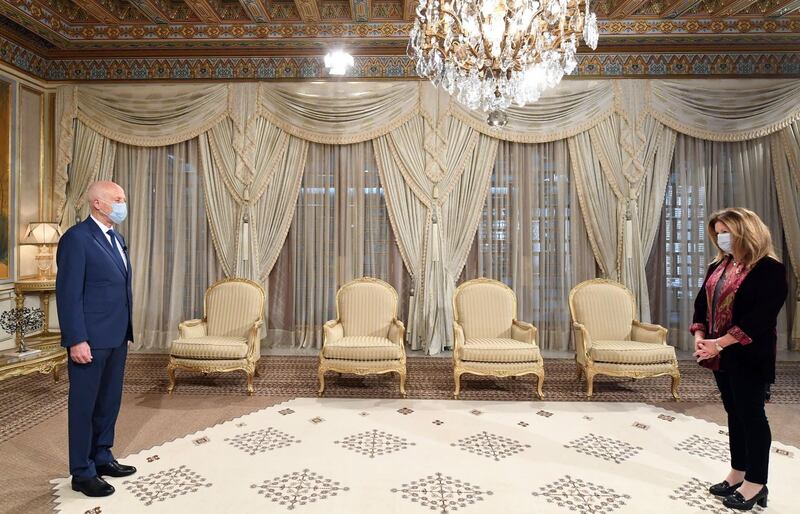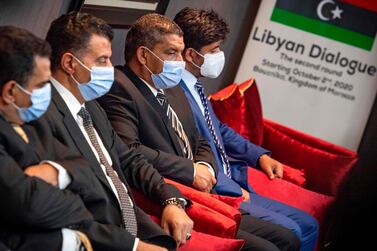Libyan parties have agreed to push for an end to years of fighting and unify the country’s rival governments as talks progress in Cairo to lay the foundations for UN-led peace talks next month.
A team from the eastern House of Representatives is meeting in Egypt this week with representatives of the Government of National Accord in Tripoli, with talks involving military and political officials from all sides.
Fathi Al Marimi, an adviser to the House Speaker Aguila Saleh, said that all sides had committed to finding a solution.
But there are sticking points over logistics of local governance, municipal management, plans for slated elections and the sharing of Libya's vast oil revenue.
Maj Gen Abbas Kamel, the head of Egypt's General Intelligence Service, told delegates that they must not let foreign interference prevent a solution to the long-running conflict.
Libya is riven by armed groups and local conflicts since the fall of Muammar Qaddafi in 2011, and is divided between the two opposed administrations.
Last year, the Libyan National Army, backed by the House of Representatives, launched an offensive to capture Tripoli after taking ground in the south and far west of the country.
The LNA said it aimed to end the rule of militias and bring stability.
But with massive Turkish intervention, including sending troops, thousands of Syrian mercenaries and the use of drones and heavy weapons, the pro-GNA militias pushed the LNA back to the central coastal town of Sirte.
After Egypt warned that it would intervene if Sirte fell, worried about militant groups operating close to its porous desert borders, GNA Prime Minister Fayez Al Sarraj and Mr Saleh called for a truce to restart talks and find a political solution to reunify the country.
The three-day talks in Egypt are the latest meeting in recent weeks by both sides after discussions in Egypt, Morocco and Switzerland. Military representatives met on September 29 in Egypt’s Red Sea resort city of Hurghada where an agreement was made to exchange prisoners.
It comes as the acting UN envoy to Libya urged all those who will participate in peace negotiations in Tunisia next month to put aside their own political ambitions for the good of the country.
Representatives of civil society, tribesmen, political leaders and members of bodies representing both governments will meet online on October 26 before direct talks in early November in Tunisia.
"What we want to see in terms of participation is people who are not there for their own political aspirations, but for their country," said UN envoy Stephanie Williams on Monday, after a meeting Tunisian President Kais Saied.
Asked if Field Marshal Khalifa Haftar or Mr Al Sarraj would be present, Ms Williams said participants would be able to take part on the condition "that they remove themselves from consideration in high government positions".
This included the key Presidential Council, the prime minister's job and ministerial posts, she told AFP.
The talks are intended to prepare for national elections, Ms Williams said.
Tunisia's Foreign Minister, Othman Jerandi, called for "a dialogue between Libyans that could lead to a political solution to the crisis".
On Monday, Mr Saied spoke to Algerian President Abdelmadjid Tebboune, who saluted the renewed dialogue and said Algeria, another neighbour of Libya, was "always at Tunisia's side".
Mr Tebboune also spoke of a visit to Tunisia after the November 1 referendum on constitutional reform in Algeria.
His office confirmed that the two men had spoken by phone.
Mr Tebboune "welcomed Tunisia's organisation of inter-Libyan dialogue under the auspices of the UN", his office said.







